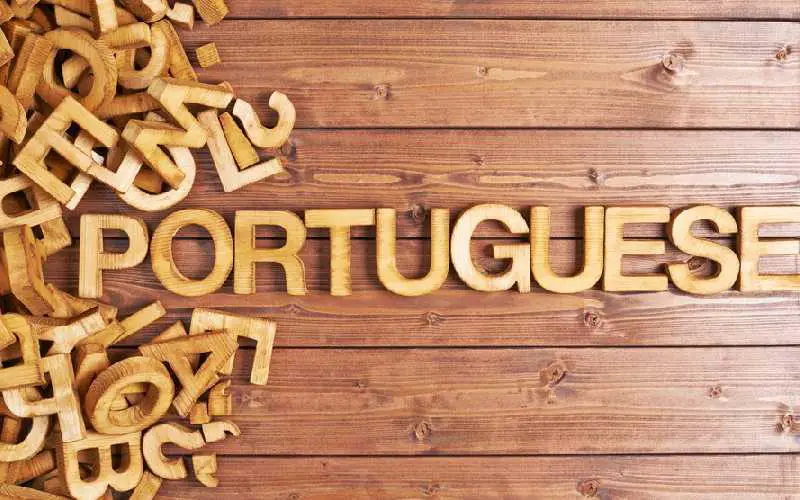Portugese is the sixth most spoken language in the world, being the most common language in nine different countries. Learning Portugese is something that will benefit you in your move to Portugal, or even for your holidays, even more so considering it is the second fastest growing language in the world, English being the top. But is Portugese Hard to Learn?
Portugal, Brazil, Mozambique, Timor-Leste, Cape Verde, Guinea-Bissau, Angola, Equatorial Guinea, and São Tomé and Principe, are all countries where Portugese is the most common language spoken. In fact only 5% of Portugese speakers live in Portugal. So where does the language originate?
Is Portugese Hard to Learn?
So is Portugese Hard to Learn? Portuguese is a little more difficult than Spanish to learn if you are a native English Speaker. However, it is less difficult than more challenging languages such as Japanese, Turkish or Mandarin.
What are the routes of the Portuguese Language?
Portugese is believed to be a mixture between Spanish, Latin, German, and Arabic. This is because Islamic Moors conquered Portugal and Spain in the eighth century and they spoke a form of Arabic. Galicia in the North of Portugal and the North West of Spain is where the language is believed to have originated. The language, Galician, was a mixture of local languages and Latin. Portugese is believed to have been formed here in around the 14th century.
The History of Portuguese
The history of the language is believed to have started with the Romans, who when conquering Europe brought Latin to the areas. Due to the incorporation of Latin into these areas, Greek and some Latin go hand in hand.
When the Roman empire collapsed, people of German origin took over the Iberian Peninsula. Years later migrating into the local areas and bringing Germanic languages to the Portuguese language. In the eighth century, due to the Moorish invasions, Arabic became commonly spoken in the conquered areas. Eventually forming Galician in the medieval times which then evolved into Portuguese. Although Galician also still exists to this day. Although, the phonology of Portuguese is like a mixture of Spanish and French.
It is seen to be more difficult to learn than Spanish, but it is worth the struggle. It is possible to get fluent or competent with the Portugese language with 600 hours of study, this will take around 6 months. One of the most difficult things for people to grasp when learning Portugese are verb tenses, Portugese has six different verb conjugations for each tense.
There is also difficulty in understanding that even Portuguese has many different forms. For example, the Portuguese spoken in Portugal is slightly different from that spoken in Brazil. Portuguese orthography is influenced by the Latin alphabet with the use of the acute accent, the circumflex accent, and the grave accent as well as many others. Another trip up when learning the Portuguese language is masculine and feminine. Masculine nouns and adjectives end in ‘o’, whereas feminine nouns and adjectives end in ‘a’. Keep in mind that in Portuguese, objects have a gender, so it is important to use the correct one. Telling the difference between singular and plural words is also going to be tricky, but don’t worry, you’ll pick it up in no time.
One thing to watch out for and to expect to struggle with when learning Portugese is the rolled ‘r’. There are different ways of pronouncing ‘r’ in Portugese, kind of like the Scottish with ‘ch’, but you will get the hang of it with practice. The only tip for learning another language is to keep at it, practice regularly and don’t give up. It will be tricky and frustrating at times, but it will be worth it in the end.
If you are looking to study Portugese, then here are some of the best ways to do so. If you’re moving to Portugal then why not study the language at one of Portugal’s top universities such as Faro, Lisbon, or Coimbra? Costs can range from around €285 to €4378. If you don’t have the money or are looking for a way to help you to study, apps such as Duolingo and Rosetta Stone are a good way of helping you on your journey of inclusivity.
If you enjoyed this article on ‘Is Portugese Hard to Learn?’ you might also like to read about Religion in Portugal and The Portuguese Language



1 thought on “Is Portugese Hard to Learn?”